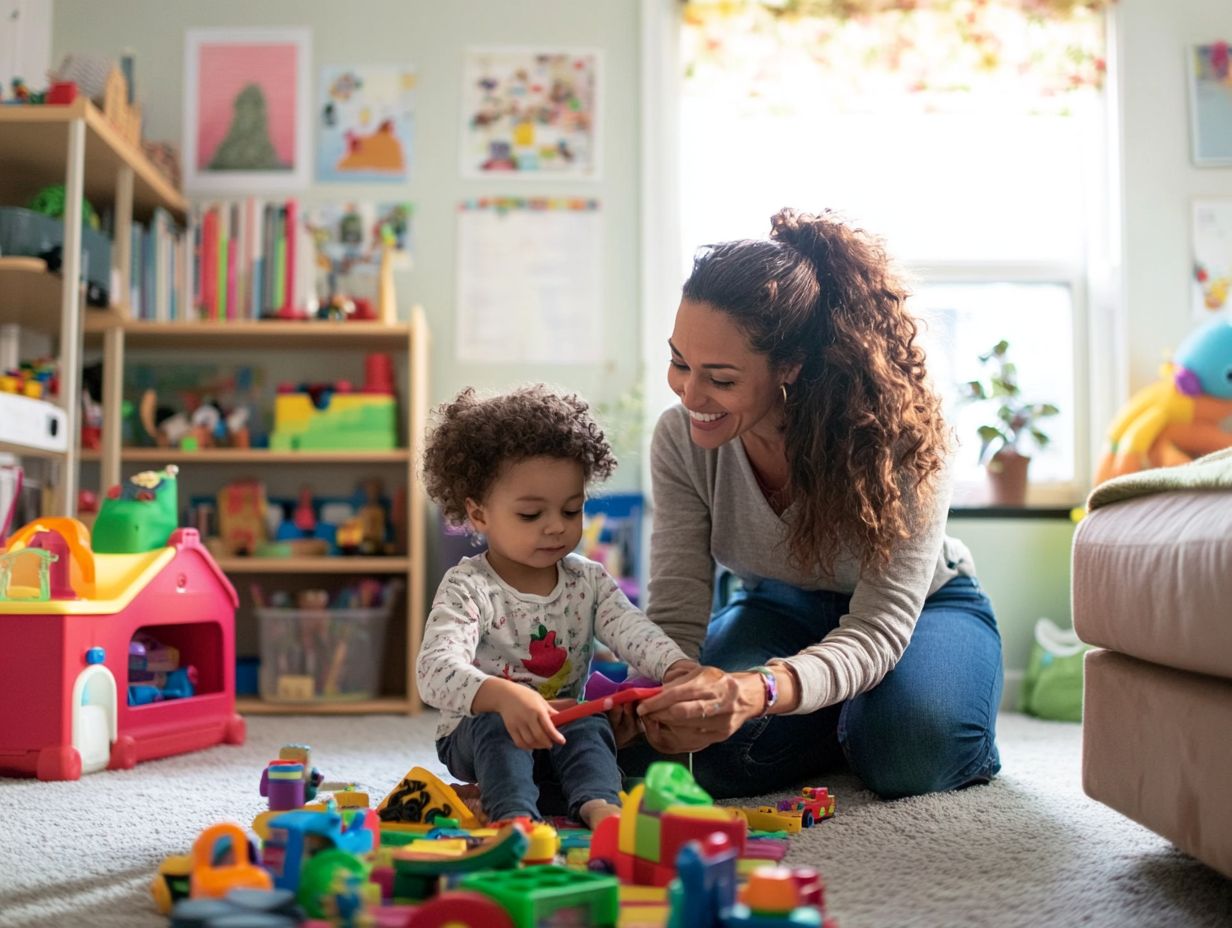Finding childcare resources is a vital concern for cancer patients, offering much-needed support during cancer treatment. These resources encompass services like in-home caregivers, daycare facilities, and community programs, each tailored to alleviate the stresses of patient care by ensuring children’s well-being, with help from trained specialists.
In-home caregivers provide personalized attention, adaptable to families’ evolving needs, while daycare facilities offer structured environments fostering social interaction and education. Community programs further enhance support through educational workshops and access to essential services, such as childcare services and housing assistance.
Selecting the right childcare provider involves considering qualities such as experience, medical knowledge, flexibility, and communication skills.
- Financial assistance through programs, including tax deductible options and insurance, can help manage costs, allowing patients to focus on recovery.
- Additionally, support from family and friends plays a crucial role in maintaining a nurturing environment for children during challenging times.
Key Takeaways:
Understanding the Need for Childcare Resources

Childcare resources are services and support systems that assist cancer patients with children by providing care and supervision during treatment.
Childcare resources help alleviate stress by offering community services, social services, and trained specialists to ensure children’s well-being during a parent’s cancer treatment. These services often include transportation help and food assistance.
These resources enable families to manage healthcare costs and access programs like Medicaid for childcare support, along with financial support for food costs and medical transportation.
Types of Childcare Resources
Types of childcare resources include:
- In-home caregivers: Provide personalized support at home.
- Daycare facilities: Offer structured environments for socialization and learning.
- Community programs: Tailored services for families dealing with healthcare access, temporary assistance, and community resources.
These resources can help families support their children while managing cancer treatment.
In-Home Caregivers
In-home caregivers provide personalized childcare and support for families dealing with cancer, addressing both medical and emotional needs.
In-home caregivers adapt to changing household circumstances by assisting with tasks like homework and meal preparation.
In-home caregivers coordinate with medical teams and therapists to ensure comprehensive support and stability.
Daycare Facilities
Daycare facilities provide structured childcare environments where children receive care and early education. These facilities may also coordinate with social services to offer additional support.
These facilities offer essential services that support working parents by ensuring children are supervised and engaged in educational activities.
Daycare centers promote social interaction and cognitive development through age-appropriate programs.
Community Programs

Community programs provide additional childcare resources for families affected by cancer by offering tailored support and services to meet specific needs.
Community programs include educational workshops on disease management, social services for mental health support, and access to essential resources like transportation, financial aid, and community assistance. Charitable childcare options may also be available through nonprofit organizations.
These programs enhance healthcare access and foster a sense of community, improving the emotional well-being of families.
Qualities to Look for in Childcare Providers
Qualities to look for in childcare providers include experience, relevant training, flexibility, and communication skills.
Childcare providers should understand children’s needs, show empathy, and have the ability to collaborate with parents and care teams.
Reliable childcare providers prioritize safety, demonstrate patience, and maintain a nurturing environment.
Experience and Training
Experience and training in childcare are essential for caregivers of cancer patients to ensure proper handling of children’s needs during a parent’s health challenges.
Experience and training enable caregivers to provide tailored support and understand both emotional and physical needs effectively.
Support group participation further refines skills, contributing to a collaborative care approach that prioritizes children’s well-being and eases family burdens.
Flexibility and Understanding of Medical Needs
Flexibility and understanding of medical needs are crucial for childcare providers working with cancer patients.
Flexibility allows caregivers to adapt to children’s treatment schedules, ensuring consistent and timely care.
Understanding medical needs helps address physical, emotional, and psychological aspects of child well-being.
Collaboration with the care team aids in providing comprehensive support and fostering resilience.
Financial Assistance for Childcare

Cancer patients can access financial assistance for childcare through government programs like Child Care and Development Fund (CCDF), local nonprofits, and community support services.
Eligibility for assistance depends on income level, family size, and treatment status.
Applications for financial aid are typically submitted through state agencies or directly to organizations offering support.
Insurance Coverage and Government Programs
Insurance coverage and government programs, like Medicaid, assist cancer patients by covering childcare costs during treatment. Programs like the American Cancer Society and the Ronald McDonald House also provide lodging resources and supplemental security income as needed.
Insurance policies may offer reimbursements or payments for babysitting and daycare services, reducing financial strain.
Government programs provide additional support, including home care assistance and transportation for medical appointments.
This coverage allows patients to concentrate on health and recovery without worrying about childcare expenses.
Support from Family and Friends
Support from family and friends helps cancer patients by providing childcare during treatment and recovery.
Family and friends offer practical help with daily responsibilities and emotional support, often coordinating with volunteer organizations and support groups to provide comprehensive care.
The assistance of family and friends can reduce stress and improve the overall well-being of cancer patients.
How Loved Ones Can Help with Childcare
Loved ones can help with childcare by taking over daily tasks such as school drop-offs, meal preparation, and playtime.
Loved ones provide emotional support and spend quality time with the children to ease their anxiety.
Community resources like local support groups and childcare services can offer additional support.
Frequently Asked Questions

What are some options for finding childcare resources for cancer patients?
There are several options available for finding childcare resources for cancer patients, including asking family and friends for help, utilizing local agencies and organizations, and exploring online resources specifically for cancer patients.
How can I find local agencies and organizations that offer childcare resources for cancer patients?
You can start by contacting your local cancer treatment center or hospital, as they may have information on available resources. You can also search online for organizations that specialize in providing childcare services for cancer patients, such as the National Cancer Society’s CancerCare program, or reach out to the Cancer Helpline for assistance.
Are there any online resources specifically for finding childcare resources for cancer patients?
Yes, there are several online resources that offer information and assistance for cancer patients seeking childcare resources. Some examples include the CancerCare Coping with Cancer as a Parent program and the American Cancer Society’s Cancer Support Community program. The Healthcare Hospitality Network also provides support for families in need of long-term care.
Do I have to pay for these childcare resources?
The cost of childcare resources for cancer patients can vary. Some organizations may offer free services or financial assistance, like those provided by the Leukemia & Lymphoma Society, while others may charge a fee. It’s important to research and compare different options to find the best fit for your needs and budget.
Can I ask family and friends to help with childcare while I undergo cancer treatment?
Absolutely. Many people may be willing and eager to help out with childcare during your cancer treatment. Don’t be afraid to reach out and ask for assistance from your loved ones.
What should I consider when choosing childcare resources for myself as a cancer patient?
When choosing childcare resources, it’s important to consider factors such as the location, cost, hours of operation, and the qualifications and experience of the caregivers. You may also want to ask about any special accommodations for children of cancer patients, such as flexibility with scheduling or transportation to and from medical appointments. Legal rights and SSI eligibility should also be reviewed to ensure comprehensive support is available.





